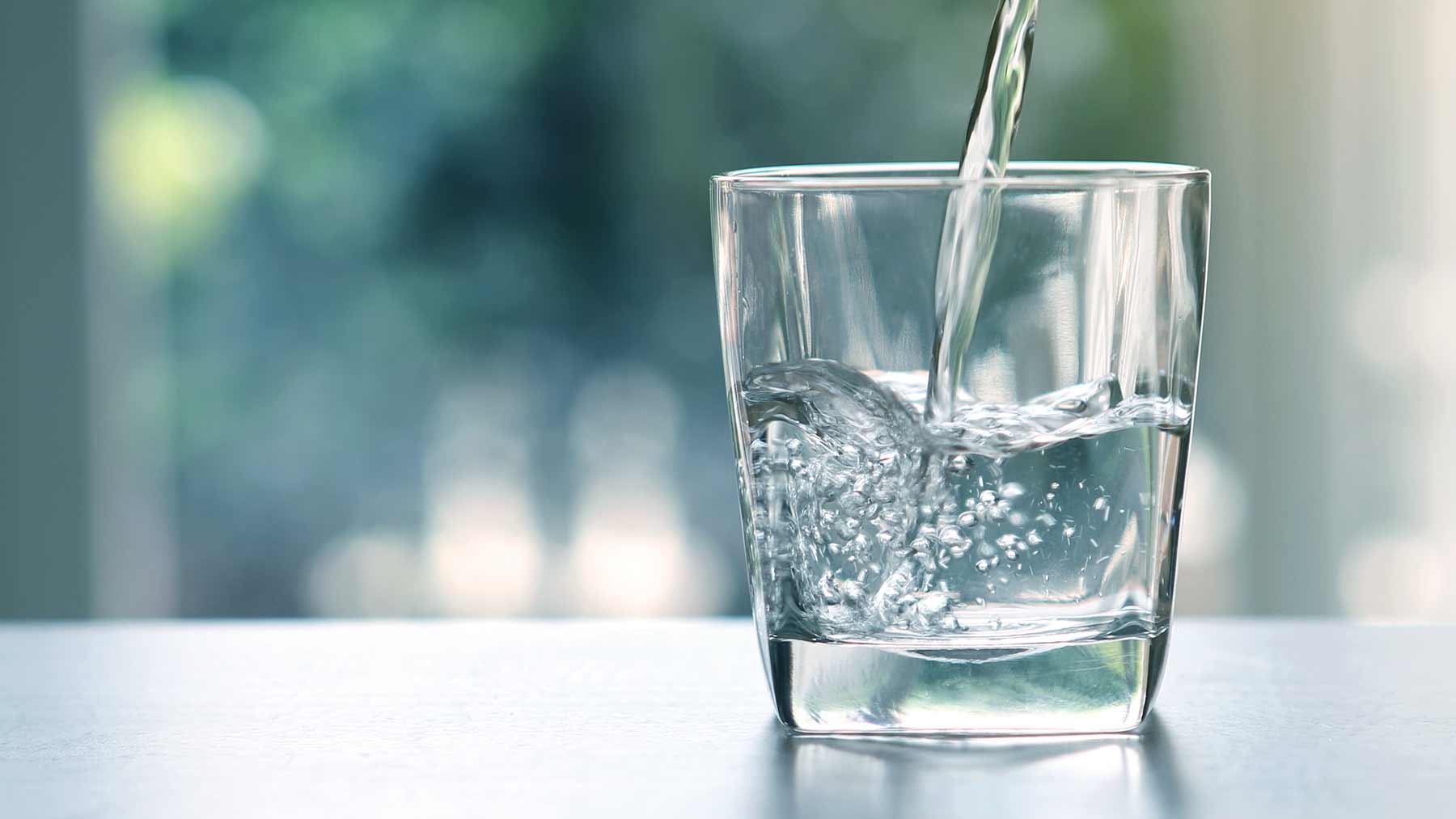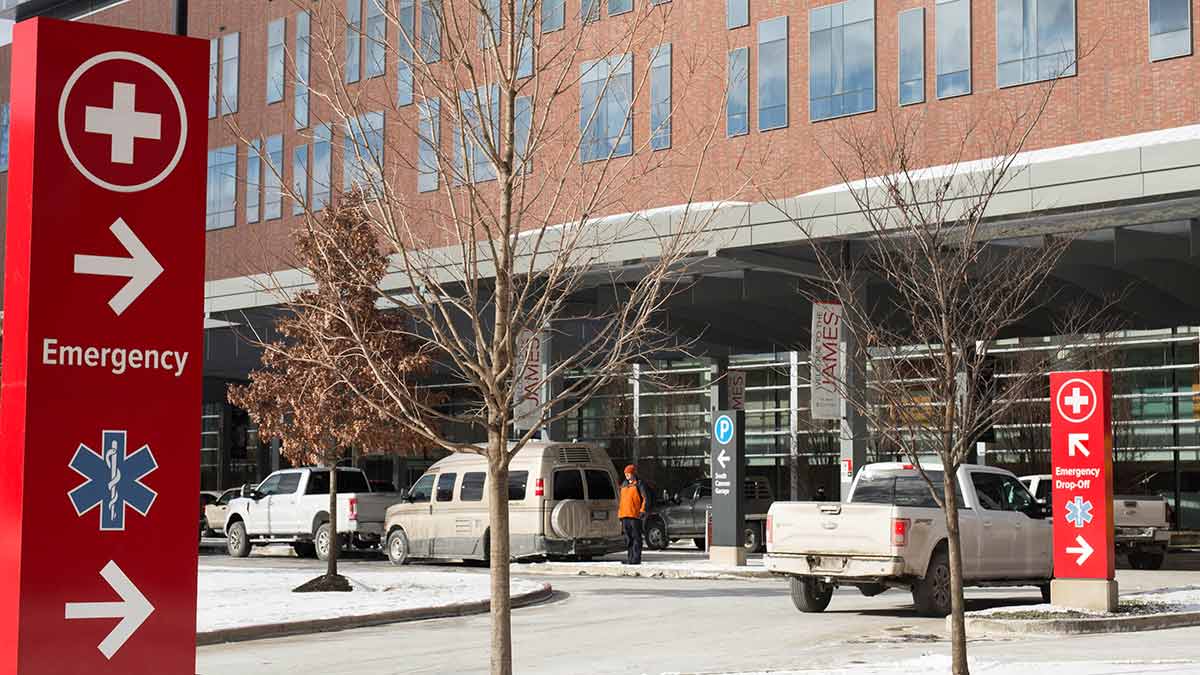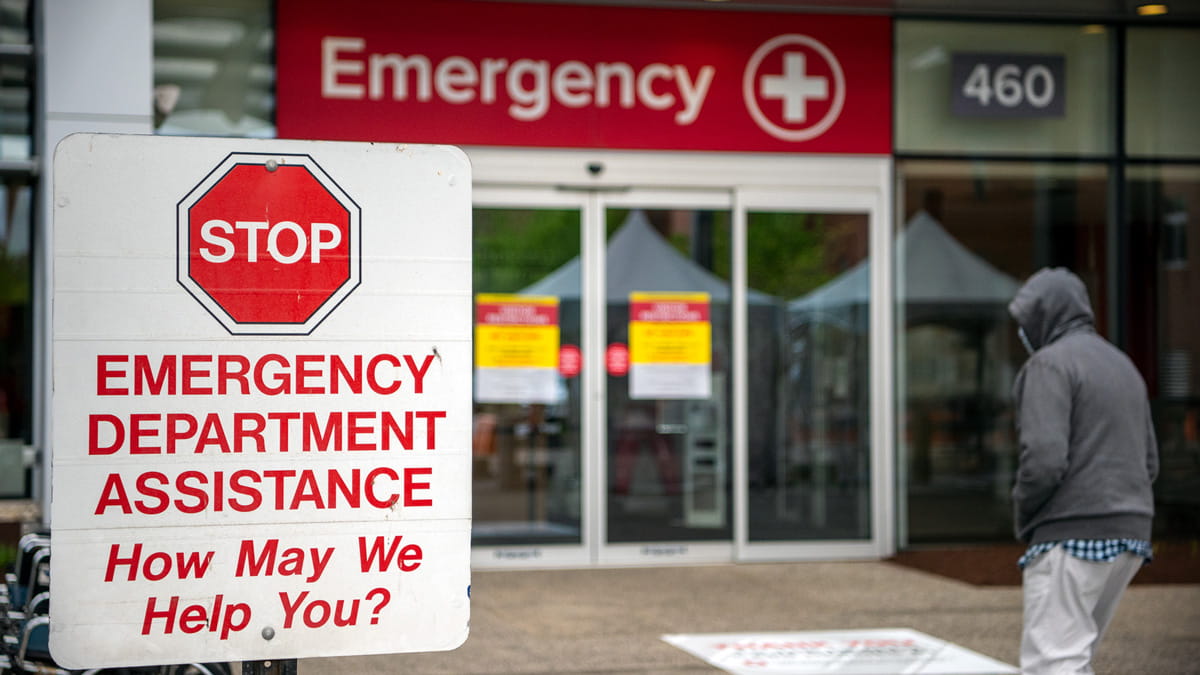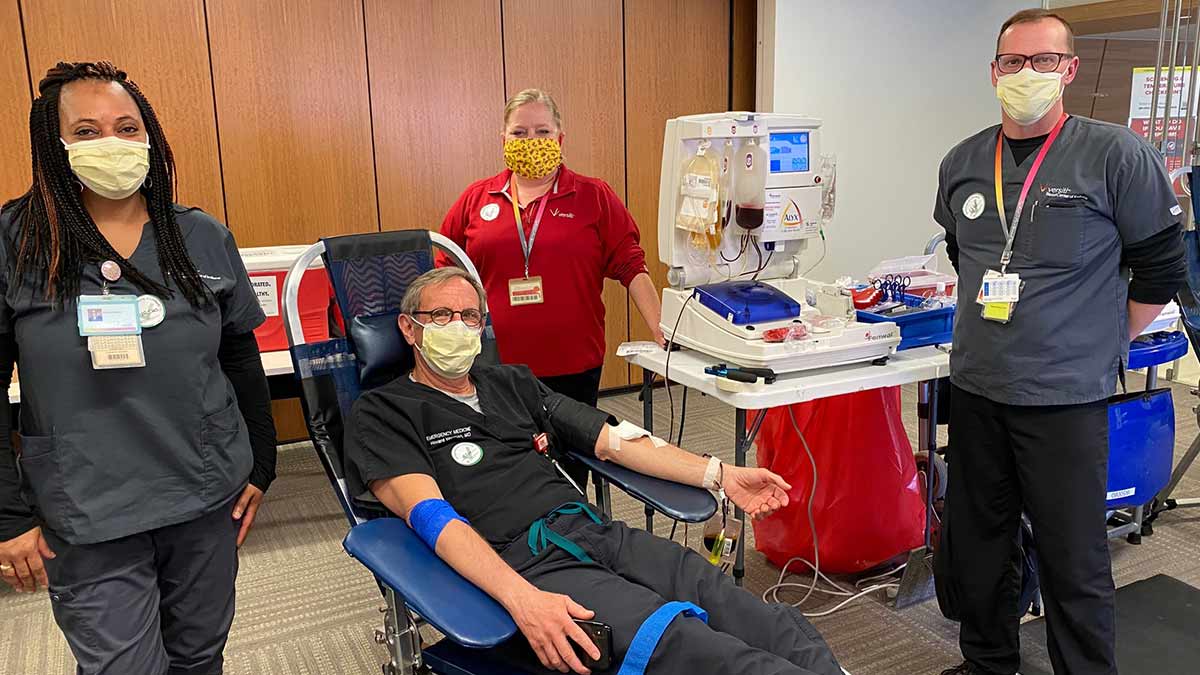Extreme heat, dehydration linked to painful kidney stones

Although they’re relatively tiny, it’s surprising how much pain kidney stones can cause. And how much damage, if not treated properly.
Kidney stones are small deposits of minerals usually made of calcium that collect in the urine and form in the kidney. These substances are normally present and don't cause problems at lower levels for most people.
But if they calcify, they can grow in size and remain in the kidney or travel down the urinary tract, causing all kinds of problems. The pain is often intense, and sometimes surgery is required to remove the stones if they become too big.
Not drinking enough water can cause kidney stones.
We typically see an increase of patients with kidney stones about six weeks after a heat spike. Super-hot weather tends to trigger dehydration, which can snowball into stone formation. People don’t drink enough water and get dehydrated, increasing the chance that crystals can form.
As with many health issues, genetics also can play a role. One’s diet often contributes to this affliction, too. A diet that’s high in sodium and high in protein, including eating a lot of animal flesh, more often causes some types of stones to occur. You'll want to limit the amount of high-processed foods and restaurant food you consume since these are major sources of salt and sodium.
The gut also may be to blame. If you have a less-favorable microbiome – one that’s less diverse and full of bad bacteria – you’re more likely to develop kidney stones. Researchers are still trying to pinpoint which types of bacteria in our intestines may help lower the risk of stones.
The most common type of stone is made of calcium oxalate. Urologists can analyze the composition of stones to understand the factors to help determine the risk of further stones. Drinking more water is recommended for anyone who has had a kidney stone, regardless of the type of the stone. For many, diet changes can further help lower the risk of future stones.
As with many health issues, genetics also can play a role. One’s diet often contributes to this affliction, too. A diet that’s high in sodium and high in protein, including eating a lot of animal flesh, more often causes some types of stones to occur. You'll want to limit the amount of high-processed foods and restaurant food you consume since these are major sources of salt and sodium.
The gut also may be to blame. If you have a less-favorable microbiome – one that’s less diverse and full of bad bacteria – you’re more likely to develop kidney stones. Researchers are still trying to pinpoint which types of bacteria in our intestines may help lower the risk of stones.
The most common type of stone is made of calcium oxalate. Urologists can analyze the composition of stones to understand the factors to help determine the risk of further stones. Drinking more water is recommended for anyone who has had a kidney stone, regardless of the type of the stone. For many, diet changes can further help lower the risk of future stones.
What types of foods can fight kidney stones?
Food that’s good for you in general: fruits and vegetables, foods that are rich in magnesium and potassium. They can decrease the acidity of urine. Dietitians call it decreasing the acid load of the diet.
For people who form calcium oxalate stones, there are several foods high in oxalates that people should eat in limited amounts including: spinach, rhubarb, soy products, black tea, nuts and chocolate. Likewise, for calcium-oxalate formers, make sure to get about three servings of calcium-rich foods in daily, ideally from dairy products. Too much or too little calcium in the diet will increase the risk of stones.
Drinking lots of water is important to preventing any type of kidney stone, and it's the single most important thing to do everyday. (Your urine should be pale yellow.) Drink at least two liters of fluid a day and more when it’s hot outside or when you’re exercising. Drink four cups of water in the morning, four cups in the afternoon, and four cups in the evening. Round that out with fluids at each meal and you’ll likely be taking in enough fluids.
It also helps to consume citrate or citric acid – lemons and limes help decrease the risk of stones. Squeeze them into your water. They keep the compounds from coming together and forming the nucleus of the stone.
Drink alcohol in moderation, because it can dehydrate you. Avoid beer when it's hot. Uric acid stones, a major type of kidney stone, are increased with beer and alcohol intake.
Finally, losing weight also is recommended, since being overweight or obese is a risk factor for making stones.
If you’re diagnosed with kidney stones, your treatment will depend on the size of the stones, what they’re made of and your symptoms. You should call your doctor if you have any of the following symptoms:
Drinking lots of water is important to preventing any type of kidney stone, and it's the single most important thing to do everyday. (Your urine should be pale yellow.) Drink at least two liters of fluid a day and more when it’s hot outside or when you’re exercising. Drink four cups of water in the morning, four cups in the afternoon, and four cups in the evening. Round that out with fluids at each meal and you’ll likely be taking in enough fluids.
It also helps to consume citrate or citric acid – lemons and limes help decrease the risk of stones. Squeeze them into your water. They keep the compounds from coming together and forming the nucleus of the stone.
Drink alcohol in moderation, because it can dehydrate you. Avoid beer when it's hot. Uric acid stones, a major type of kidney stone, are increased with beer and alcohol intake.
Finally, losing weight also is recommended, since being overweight or obese is a risk factor for making stones.
If you’re diagnosed with kidney stones, your treatment will depend on the size of the stones, what they’re made of and your symptoms. You should call your doctor if you have any of the following symptoms:
- Extreme pain in your back or lower abdomen that won’t go away
- Blood in your urine
- Fever and chills
- Vomiting
- Urine that smells bad or looks cloudy
- Pain when you urinate
Small stones may not need immediate treatment. Still, you may need pain medicine, or you may be started on medical expulsion therapy to speed up the rate of stone passage.
You also should drink lots of fluids to help move the stone along. If you are vomiting often or don’t drink enough fluids, you may need to go to the hospital for fluid replacement.
You also should drink lots of fluids to help move the stone along. If you are vomiting often or don’t drink enough fluids, you may need to go to the hospital for fluid replacement.
Liz Weinandy is a dietitian for Nutrition Services at The Ohio State University Wexner Medical Center.




